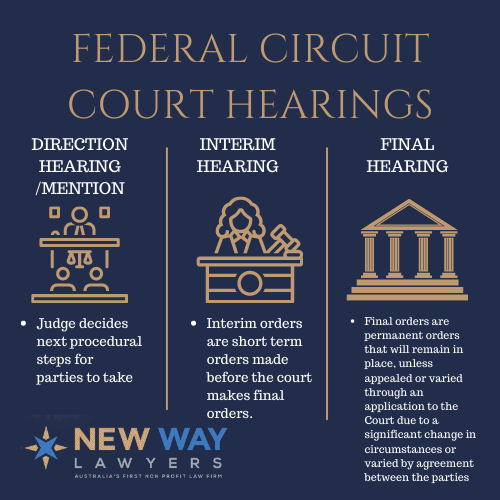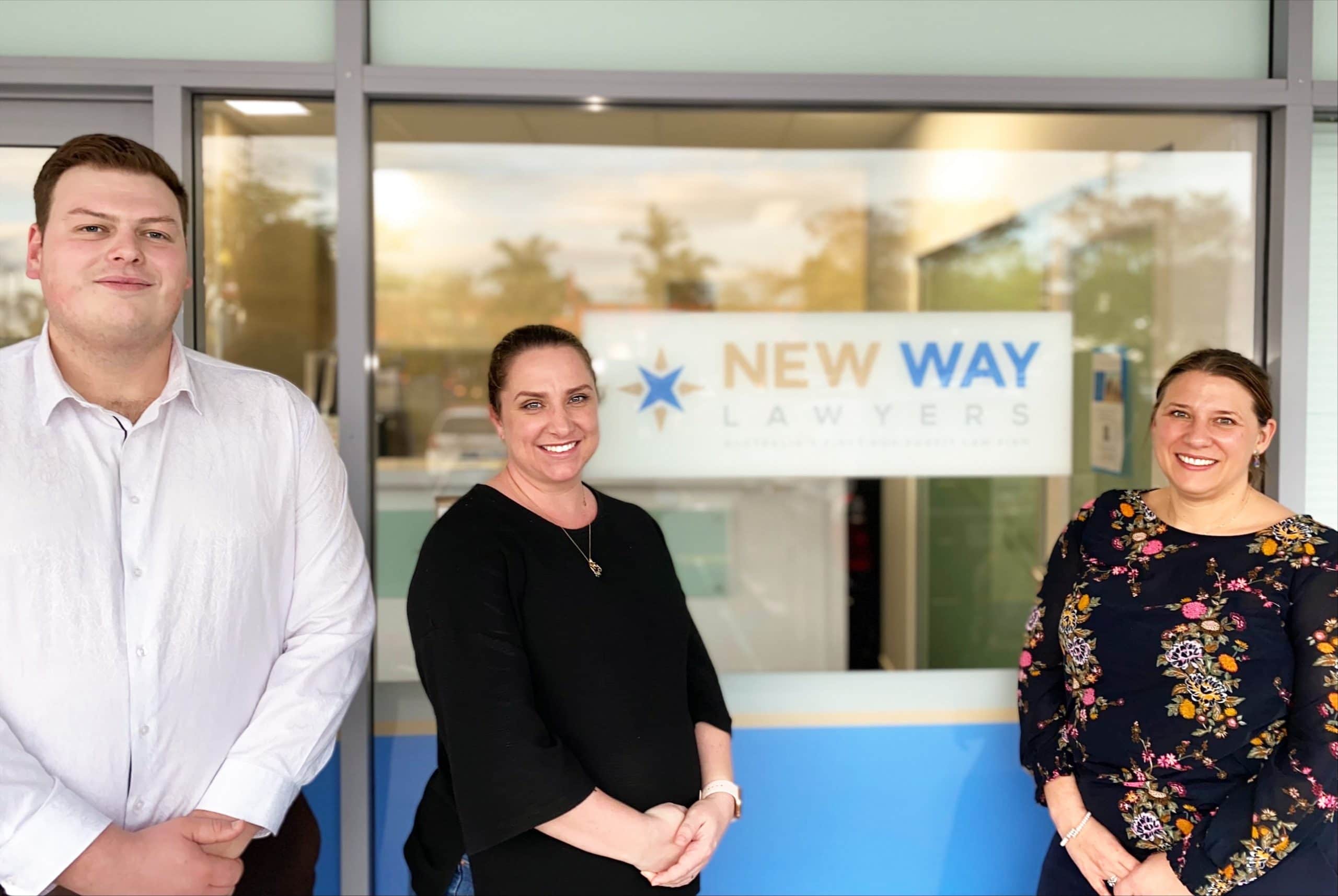We’re here to help. Sign up to our Lunch with a Lawyer Facebook Group where we answer your questions for free every lunchtime
So you have progressed your matter past the first court appearance and you are told that you have to attend an Interim Hearing or a Final Hearing… what does this actually mean? Legal jargon can sometimes feel like a different language and the Courts can feel like a different planet.
To help makes sense of it, the team at New Way Lawyers are going to break it down and share key information about Interim and Final Hearings.

Interim Hearing in the Federal Circuit Court
An Interim Hearing usually occurs when two parties cannot agree on parenting or property arrangements. The Court makes an order before the final decision is made (an interim order). The Interim order is a temporary order and stays in place until a final decision is made by the Court or agreement reached by the parties.
What do you need to do before a family law Interim hearing?
If your matter has been listed for an Interim Hearing, the Court will most likely have told you what documents you need to file. It is important to comply with timelines for filing documents, otherwise your matter may be delayed (adjourned) or the Judge may grant the orders the other party is seeking. Failing to follow directions given by the Judge can also sometimes result in a ‘costs order’ being made, requiring you to pay money to the other party or their solicitor to cover their costs.
An interim hearing is generally heard ‘on the papers’ which means the Judge will make a decision after reading the documents that have been filed. It is rare for witnesses to be called or cross examined during interim hearings.
Final Orders in the Federal Circuit Court
A Final Hearing is a formal court hearing where all documents are presented to the Court. In addition, witnesses are called and cross examined. The Court considers all of the evidence before making a final decision. There can be a significant length of time, often 1-4 years. between when court proceedings are commenced and a final hearing being set.

How can you prepare for a final hearing in the Federal Circuit Court?
Preparing for final hearing is a vey involved and time intense process. Prior to the final hearing the Judge will make trial directions, which set all the steps that the parties need to take prior to the final hearing. This will include what additional documents needs to be filed, what further disclosure needs to be exchanged between the parties and arrangements for the payment of court fees. It is at this point that a barrister will often become involved in preparing the matter for final hearing.
It is important to be prepared for your final hearing by having all of your documents with you. A good tip is to remember to call the Judge, ‘Your Honour’ and present yourself appropriately as the final hearing is formal.
Can you appeal a final order?
After a final orders have been made people often wonder if the orders are able to be changed.
If final orders were made by a Judge at final hearing the orders may be able to be appealed. The grounds for appealing final orders include that an error of law or an error of fact was made by a Judge who was presiding over the final hearing. An appeal must be on the basis of one of these valid grounds, it is not possible to appeal simply if the outcome is different to what a party was hoping for or not as favourable as expected.
There may be circumstances following the making of final orders where a significant change in circumstance has arisen, which was not contemplated by the final orders. This change in circumstances may give rise to the ability for an application to be made to the Court to change or vary the final orders. It is important to obtain legal advice if you wish to make an application to vary final orders as it is necessary for a threshold test to be satisfied before the Court will consider the actual application to vary. This threshold test is known as the Rice and Asplund test.
At any point after the making of final orders the parties can agree between themselves to vary or change the orders but both parties must agree, changes are not able to be unilaterally made by just one party.

Call us today on (07) 3548 5868 if you would like a free 20 minute consultation with one of our experienced family lawyers.
Here at New Way Lawyers, we have created a new way to provide legal services. We are committed to providing the best quality legal advice at an accessible price with a strong focus on client care.
I wanted to thank you Joanne for all your work and effort on behalf of my family and I. Everyone at New Way Lawyers has been very helpful and made an unfamiliar process relatively easy for me. Thanks so much for everything. All the best.
BA, 31 January 2017